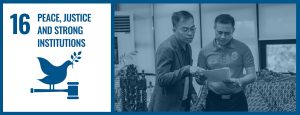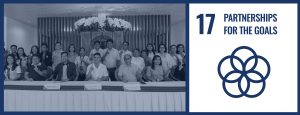2024 Reports | SDG 16 – Peace, Justice and Strong Institutions

Isabela State University (ISU) stands as a pillar of integrity and leadership in higher education, extending its influence beyond academics to the promotion of transparency, justice, and strong institutional governance. Anchored in its vision of “a leading University in Asia,” ISU integrates principles of good governance, ethical leadership, and social responsibility into all its operations and community engagements. The University actively ensures that transparency and accountability are embedded in its policies and practices—ranging from financial disclosures and open governance mechanisms to participatory decision-making processes that involve students, employees, and community stakeholders.
Beyond governance, ISU’s initiatives are deeply rooted in empowering communities and advancing social justice. Through research, extension programs, and partnerships with local and national government agencies, the University supports projects that promote equitable access to education, environmental stewardship, livelihood development, and civic awareness. These programs help bridge gaps in opportunity and strengthen institutions at the grassroots level, ensuring that progress is both inclusive and sustainable.
At its core, ISU’s dedication to serving the underserved and fostering inclusive governance reflects its belief that education must drive transformation not just within the campus, but across society. By cultivating leaders who value honesty, accountability, and empathy, ISU nurtures a generation capable of shaping a fair and transparent future. Through these enduring efforts, the University continues to embody the spirit of peace, justice, and strong institutions, aligning its mission with the broader goals of national development and the United Nations Sustainable Development Goals (SDGs).
UNIVERSITY GOVERNANCE MEASURES
Elected Representation
The Board of Regents, the highest governing body of the Isabela State University (ISU) system, serves as the cornerstone of the University’s leadership and governance. Tasked with formulating vital institutional policies, the Board ensures that every decision embodies inclusivity, accountability, and shared governance. Chaired by the Commission on Higher Education (CHED) Commissioner and co-chaired by the University President, the Board is composed of ten (10) distinguished members representing various sectors — including national and regional government agencies, the private sector, and the University’s internal stakeholders. Among them are regional directors, committee chairs, and the presidents of the alumni, faculty, and student federations, each contributing valuable insights to the University’s strategic direction.
This diverse composition allows the Board to integrate multiple perspectives in policy formulation, ensuring that the University’s academic, administrative, and developmental decisions align with public service and educational excellence. Through collaborative deliberations, the Board upholds transparency and responsiveness, fostering a governance culture that values participation and evidence-based decision-making. Ultimately, the Board of Regents’ unified leadership strengthens ISU’s mission to deliver accessible, high-quality education while promoting equity, innovation, and sustainable development across its campuses and communities.
Students’ Union
Isabela State University (ISU) upholds student representation and participatory governance through the Supreme Student Council (SSC) Federation — the highest policy-making and coordinating body for all student councils across the ISU system. Composed of duly elected officers from each campus, the SSC Federation is officially recognized by the University and works closely with the administration to promote student welfare, leadership development, and institutional harmony. It serves as the collective voice of the student body, ensuring that student perspectives are considered in university decision-making processes and policy discussions.
Beyond advocacy, the SSC Federation organizes and implements various programs that advance student interests, such as leadership summits, outreach activities, and campaigns addressing academic, social, and political concerns. It also fosters collaboration among campus student councils, harmonizing initiatives and creating a unified platform for dialogue and action. Through these efforts, the SSC Federation empowers students to take an active role in shaping a responsive and inclusive academic environment, reinforcing ISU’s commitment to democratic participation, transparency, and holistic student development.
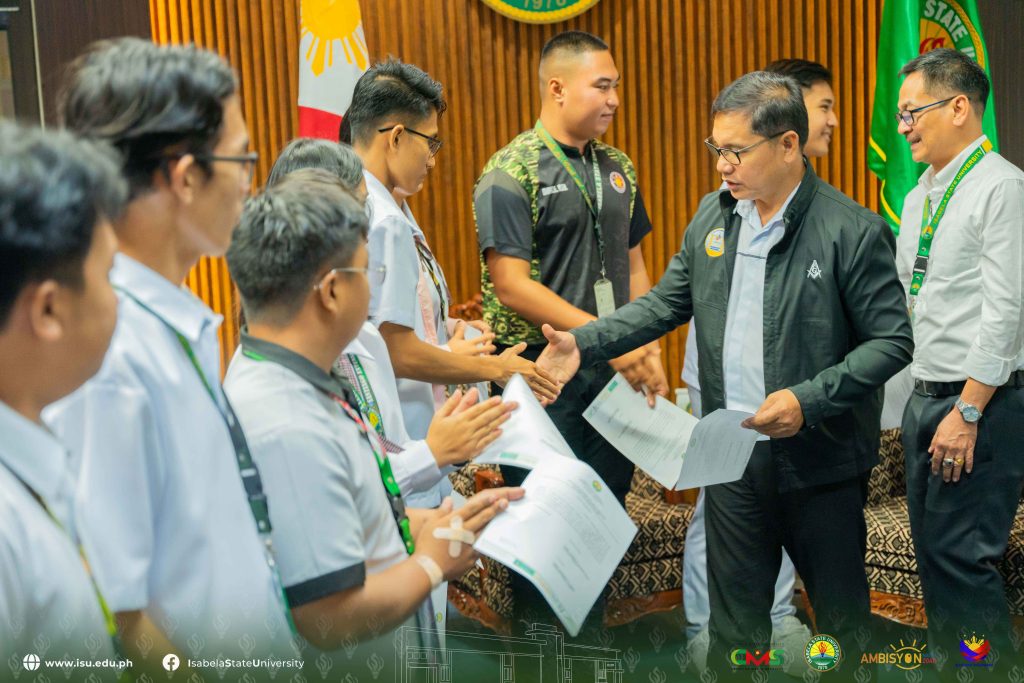
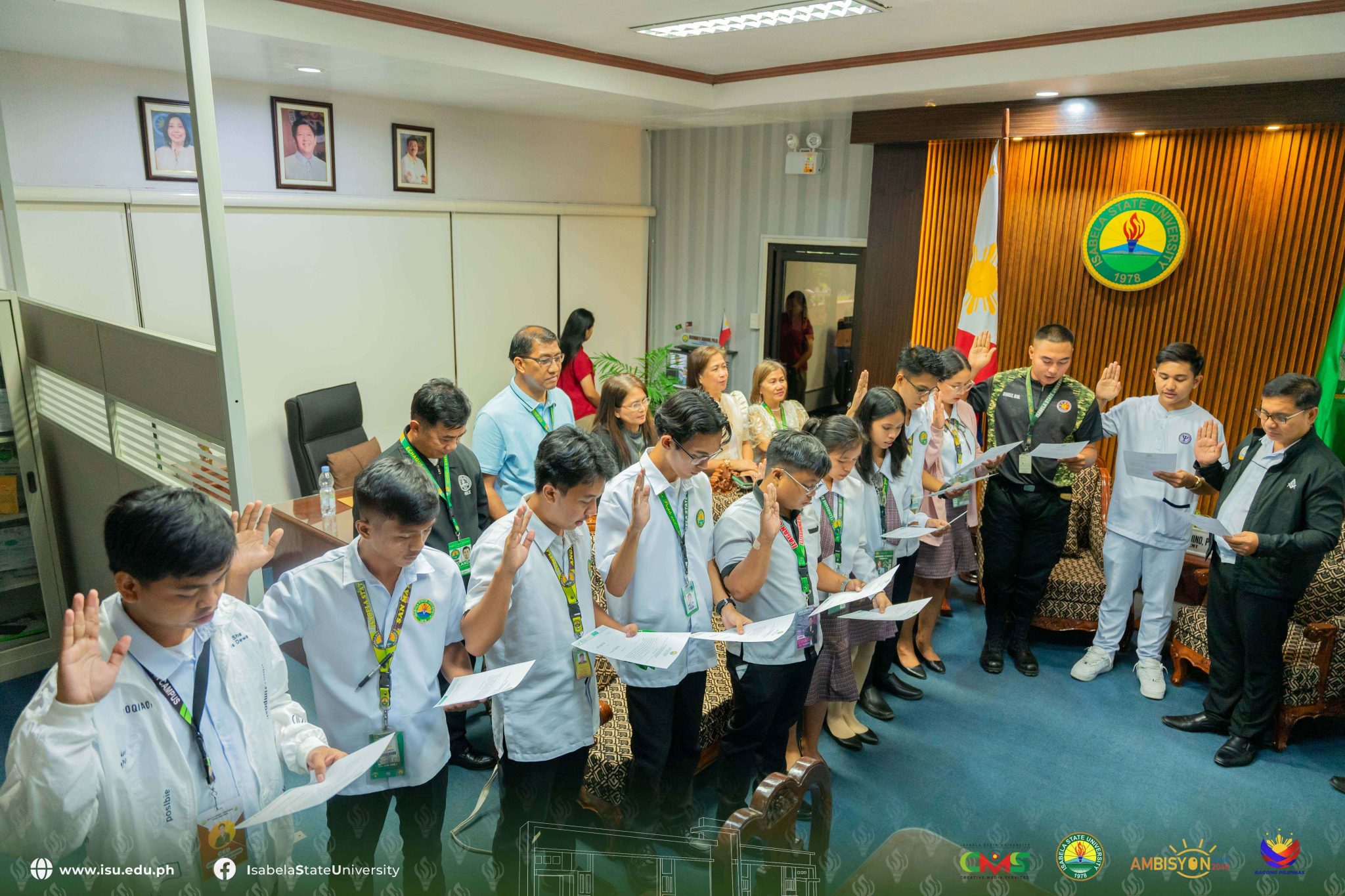
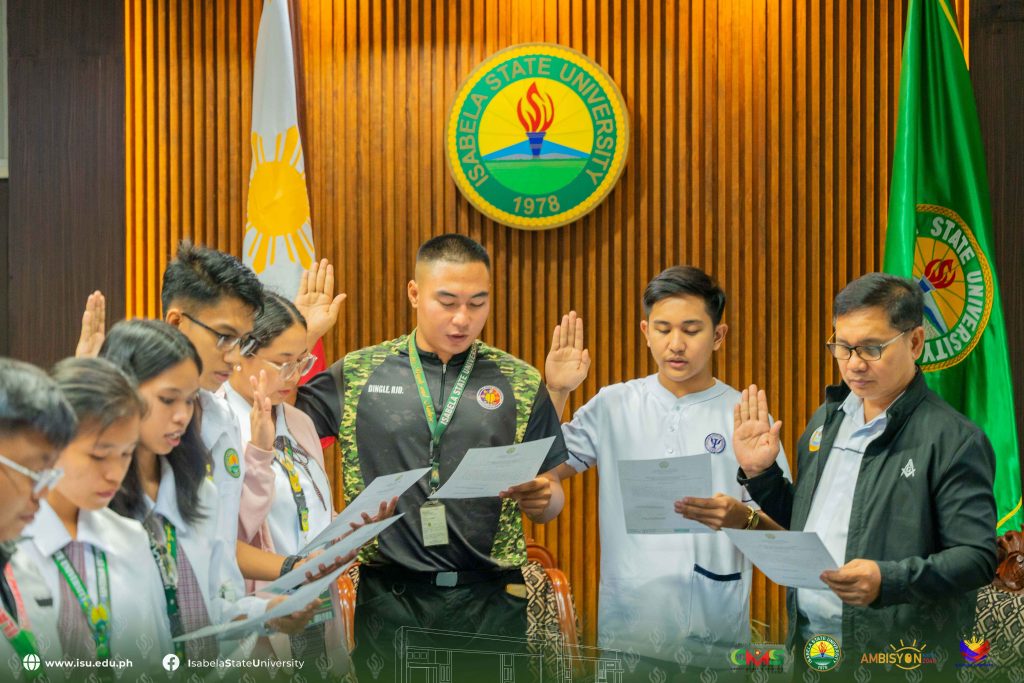
Identify and Engage with Local Stakeholders
Isabela State University (ISU) upholds its mission of fostering inclusive growth and social transformation through quality extension services that empower people and strengthen communities. Anchored in its Extension Manual, the University institutionalizes a framework that ensures its programs are participatory, evidence-based, and responsive to real community needs. Guided by the spirit of volunteerism, ISU’s faculty, staff, and students contribute their time, expertise, and resources to uplift underserved sectors—instilling civic consciousness, compassion, and a deep sense of social responsibility within the academic community.
Collaboration lies at the heart of ISU’s extension agenda. The University works closely with local government units (LGUs), non-government organizations (NGOs), private industries, and people’s organizations to co-create solutions that address pressing social, economic, and environmental issues. By adopting a need-based and problem-oriented approach, ISU ensures that every program is grounded on thorough community assessments and scientific research. Its bottom-up, community-based process engages beneficiaries at every stage—from identifying problems to implementing and evaluating projects—fostering local ownership, accountability, and sustainability.
More than providing temporary assistance, ISU’s extension initiatives prioritize capacity-building, empowerment, and long-term resilience. By equipping individuals and communities with knowledge, skills, and appropriate technologies, ISU enables them to become active partners in their own development. This enduring commitment to public service, sustainability, and social equity reflects ISU’s vision of a just, self-reliant, and empowered society built on education, innovation, and collective action.
Participatory Bodies for Stakeholder Engagement
The Isabela State University’s main governing body, the Board of Regents, includes representatives from both the public and private sectors, as well as members from within the University. The public sector is represented by two (2) members from the Committee on Higher and Technical Education, and one (1) member each from the Regional Offices of the Department of Agriculture, the Department of Science and Technology, and the National Economic and Development Authority. Meanwhile, two (2) Private Sector Representatives are elected to the Board of Regents to represent the local private sector, industry, business, or professional community. The existence of this participatory body allows for engagement with local stakeholders and ensures that decisions take into account diverse perspectives.
University Principles on Corruption and Bribery
Isabela State University (ISU) firmly upholds the principle that public office is a public trust, emphasizing that all officials and employees must perform their duties with responsibility, honesty, competence, and loyalty, always prioritizing public interest over personal gain. In line with this, the University strictly prohibits any form of graft and corruption and requires full compliance with national laws such as Republic Act (RA) 3019 or the Anti-Graft and Corrupt Practices Act, RA 11032 or the Ease of Doing Business and Efficient Government Service Delivery Act of 2018, RA 6713 or the Code of Conduct and Ethical Standards for Public Officials and Employees, Section 65 of RA 9184 or the Government Procurement Reform Act, as well as other anti-corruption provisions in the Revised Penal Code. Through these measures, ISU ensures a culture of transparency, ethical governance, and accountability in all its operations.
University Academic Freedom Policy
Isabela State University (ISU) upholds academic freedom as a fundamental principle guiding its teaching, research, and governance practices. Anchored in the ISU Administrative Manual and Research Manual, this policy guarantees that faculty members have the autonomy to choose their research areas, conduct studies independently, and share their findings through instruction, publication, and public discourse without external interference. This institutional protection nurtures a culture of innovation, intellectual integrity, and critical inquiry, empowering educators and researchers across all disciplines and campuses to engage with local, national, and global issues through evidence-based scholarship.
Beyond supporting research autonomy, ISU’s administrative framework reinforces ethical conduct, inclusivity, and respect in the academic workplace, ensuring that both faculty and staff operate in an environment of fairness and professional freedom. The University’s public commitment—reflected in its official manuals, governance policies, and website—demonstrates transparency and alignment with international higher education standards. Through this steadfast adherence to academic freedom, ISU not only strengthens its research and teaching mission but also contributes to the advancement of knowledge, democratic values, and social progress.
University Publication of Financial Data
In alignment with its commitment to transparency and good governance, Isabela State University (ISU) ensures that its financial and operational information is readily available to the public through its official Transparency Seal webpage. This initiative serves as a clear demonstration of the university’s accountability and openness in the management of public funds. ISU systematically publishes comprehensive financial documents such as the Statement of Appropriations, Allotments, Obligations, Disbursements and Balances (FAR No. 1), Summary of Disbursements (FAR No. 4), Physical Reports of Operations (BAR No. 1), and Revenue and Receipts (FAR No. 5), covering multiple fiscal years from 2016 to 2024. These detailed reports enable stakeholders to track fund utilization and program implementation outcomes with accuracy.
In addition, the university discloses DBM-approved budgets, annual procurement plans, procurement monitoring reports, and ISO 9001:2015 certifications, ensuring that all spending and institutional activities align with government standards and performance targets. ISU also publishes Freedom of Information (FOI) manuals, registries, and reports, as well as policies such as the “No Wrong Door” policy, which guarantee accessible and transparent communication channels for stakeholders.
Through these comprehensive publications, ISU exemplifies a proactive approach to transparency by allowing students, faculty, government agencies, and the general public to review its financial performance and governance practices. This openness reinforces trust in the institution’s operations and underscores its role as a responsible, transparent, and accountable public university that upholds the highest standards of ethical and fiscal management.
WORKING WITH GOVERNMENT
Provide Expert Advice to Government
Isabela State University (ISU), through its Echague Campus, has forged a meaningful partnership with the Municipality of Echague to establish a Local Government Unit (LGU) Center for Yogad Studies, demonstrating the University’s commitment to providing expert guidance in cultural preservation and policy development. Initiated by the College of Arts and Sciences – Languages and Literature Department under the leadership of Dr. Ma. Theresa Eustaquio, the collaboration was formalized through a Memorandum of Agreement (MOA) signed by ISU and LGU officials, including Hon. Francis Faustino “Kiko” Dy, Municipal Mayor of Echague.
The project focuses on addressing linguistic and cultural concerns within the Yogad community, an indigenous group primarily based in Echague and surrounding lowland areas of the Cagayan Valley. By establishing the Center for Yogad Studies, ISU and the LGU aim to preserve and revitalize the Yogad language, literature, and cultural identity, which face challenges due to limited scholarly work and dwindling native speakers.
Through this initiative, ISU extends its expertise in research, language documentation, and cultural education to support local governance in crafting evidence-based strategies for heritage preservation. The project not only strengthens local policy efforts but also underscores ISU’s broader role as a knowledge partner to government institutions, ensuring that cultural diversity and indigenous heritage remain integral to regional and national development.
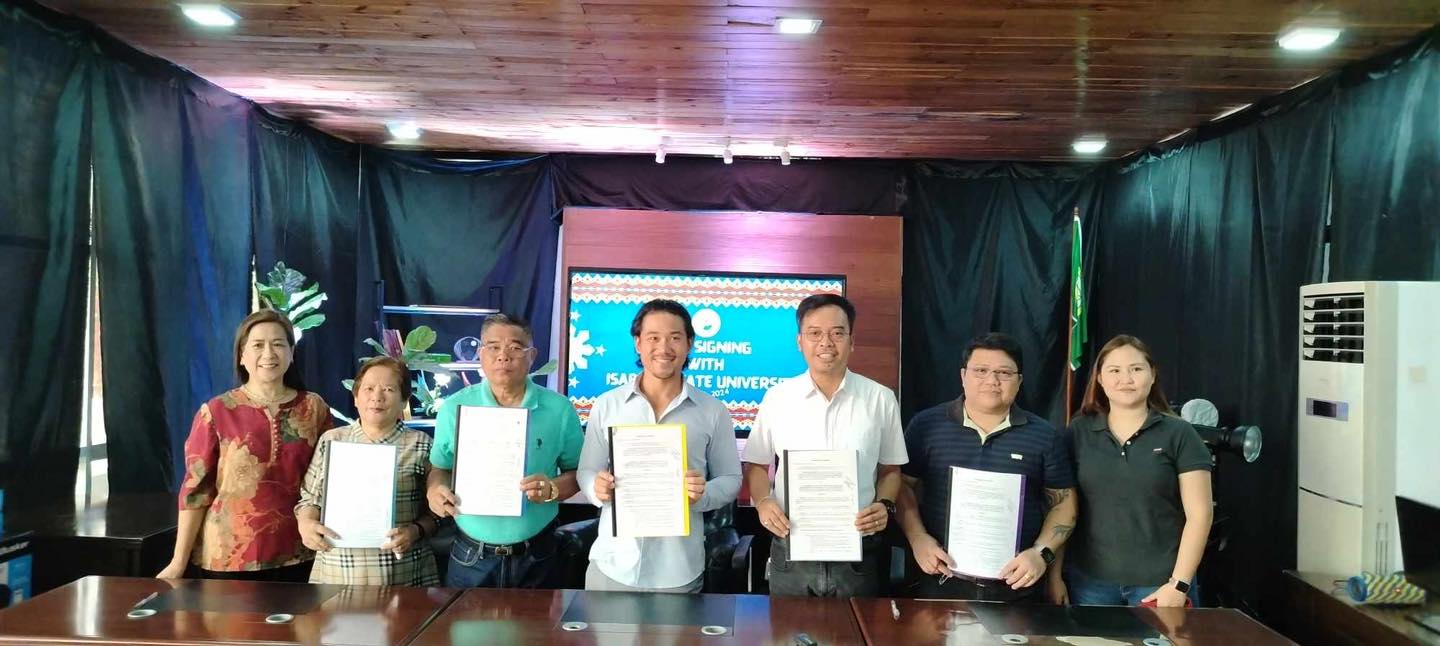
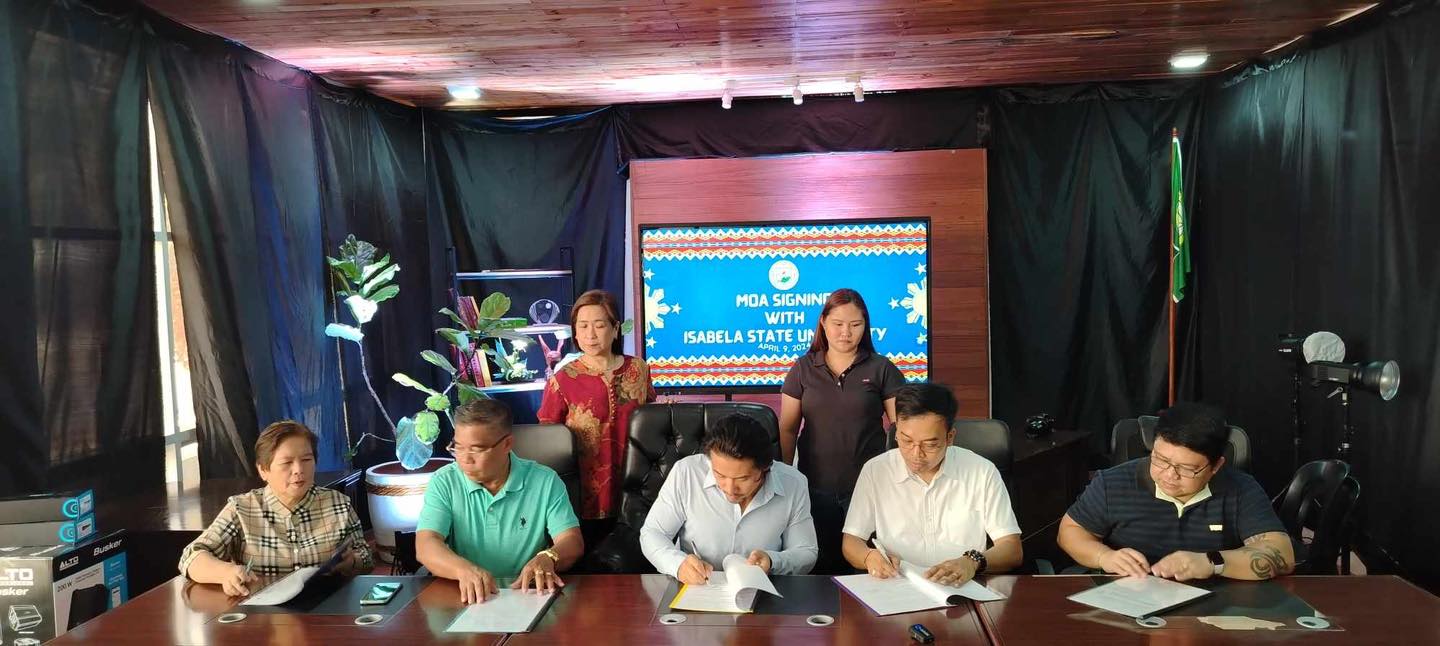
Policy- and Lawmakers Outreach and Education
Isabela State University (ISU) strengthened its role in environmental governance and sustainability through a Memorandum of Agreement (MOA) signed with Tanggol Kalikasan Inc. on February 5, 2024. The partnership marks the establishment of the Institute of Environmental Governance (IEG) within the University, a strategic initiative aimed at enhancing the capacity of Local Government Units (LGUs) to effectively implement environmental laws and policies.
Tanggol Kalikasan, a long-standing environmental law organization that began in 1987 under the Haribon Foundation, partners with state universities and colleges (SUCs) nationwide to empower communities and strengthen institutions in ecosystem management. Through this collaboration, ISU will contribute faculty expertise and research support to the IEG Management Committee, advancing capacity-building programs in environmental law enforcement, constituency development, and organizational governance.
The establishment of ISU’s IEG forms part of the Environmental Justice Sector Reform Project (EJSRP) Phase 3, which focuses on building the capability of LGUs—particularly in Isabela’s coastal areas—to uphold environmental justice and sustainable governance. By integrating academic expertise with practical community engagement, ISU reinforces its commitment to providing education, training, and technical support to policymakers and local leaders, ensuring that environmental stewardship becomes a shared and sustainable responsibility.
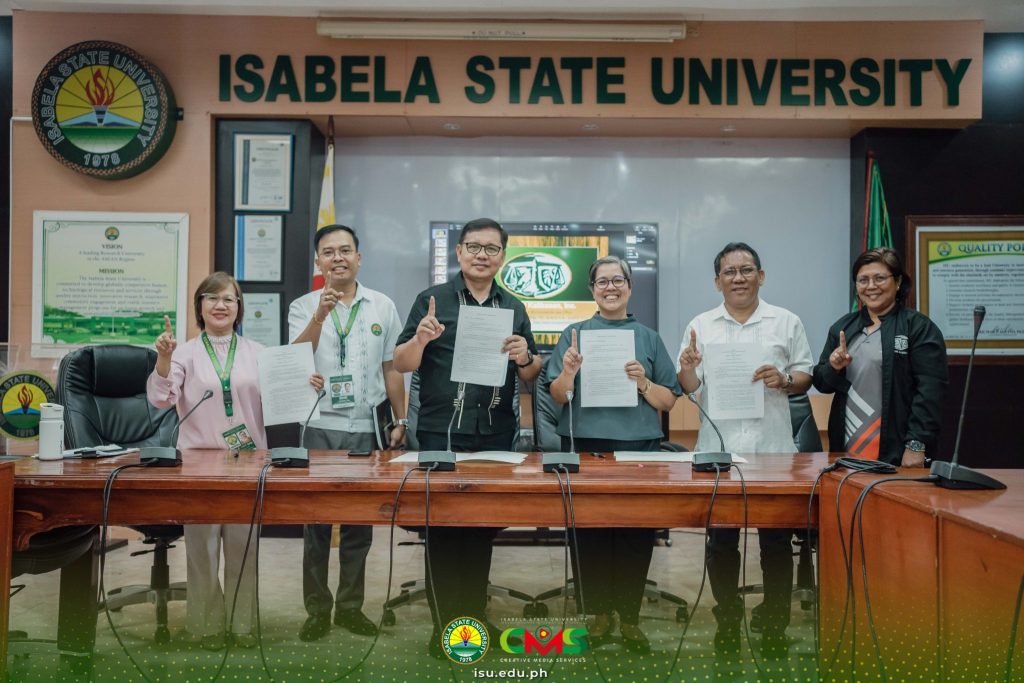
Participation in Government Research
Isabela State University (ISU) actively undertakes policy-focused research in collaboration with government agencies through initiatives such as the “Sediment Evaluation and Development of Intervention (SEDI)” project, which officially began on June 5, 2024. The project is a joint effort between ISU’s Water Research and Development Center (WReDC), the Department of Science and Technology (DOST), Bulacan State University (BulSU), and the National Irrigation Administration (NIA). This collaboration demonstrates ISU’s strong commitment to using science and technology-based approaches in developing sustainable policies and interventions for the management of reservoirs and river basins across the Philippines.
During the project kickoff meeting, Dr. Lanie A. Alejo, Project Leader and Director of WReDC, provided an in-depth overview of the SEDI project, emphasizing the urgent need to address sedimentation problems that impact water resource systems and irrigation facilities. The discussion covered the project’s objectives, framework, research sites, and expected outcomes, including the formulation of data-driven policy recommendations for better water and sediment management. The forum also tackled operational matters such as funding allocation, equipment procurement, staff recruitment, and coordination with Angat Dam operators for data access and model development—key components for effective policy-oriented research outcomes.
The meeting also underscored ISU’s leadership in capacity building and inter-university collaboration. Dr. Orlando F. Balderama, Vice President for Research and Development, Extension, and Training, proposed extending technical assistance to the University of Science and Technology of the Philippines (USTP) in developing its R&D agenda on water resource management. This includes conducting webinars, research colloquia, and forming partnerships with the International Organization on Climate Change Adaptation and Disaster Risk Reduction Management (IO-CCA-DRRM) through a forthcoming Memorandum of Understanding (MOU)—further integrating ISU’s research with national policy and education initiatives.
In closing, Dr. Alejo highlighted the collaborative and mission-driven nature of the SEDI project, emphasizing that its success depends on the shared commitment of all stakeholders in mitigating sedimentation’s impact on the country’s reservoirs and river basins. Through this initiative, ISU strengthens its role as a policy research partner of government institutions, contributing science-based insights and sustainable solutions that support national goals in environmental management and water resource governance.
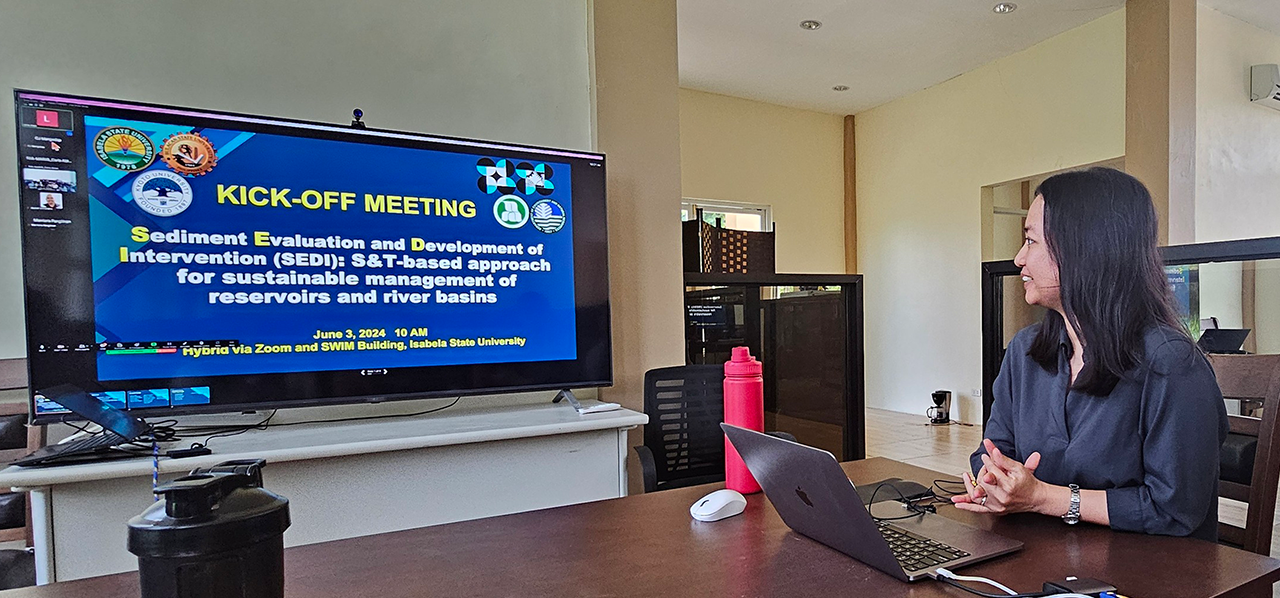
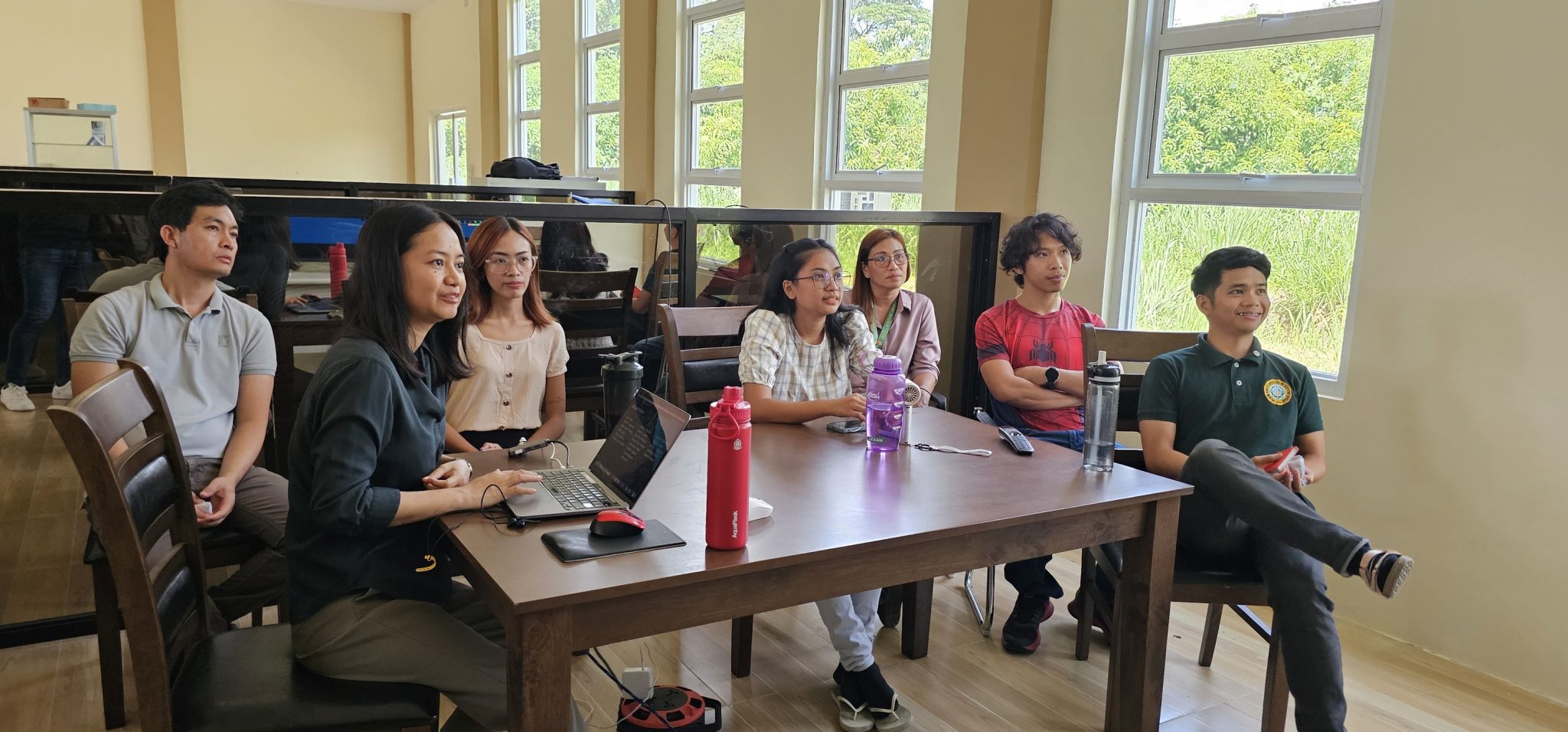
Neutral Platform and Safe Space to Discuss Issues and Challenges
Isabela State University (ISU) reaffirmed its strong commitment to providing a platform for stakeholders to frankly discuss issues and challenges. In one such instance, the university has actively participated in the 18-Day Campaign to End Violence Against Women, held from November 25 to December 12, 2024. The campaign was launched simultaneously across all ISU campuses on November 25, 2024, with the participation of university officials, faculty, staff, and students. This initiative aligns with Proclamation No. 1172, s. 2006 and Republic Act No. 10398, both of which mandate government institutions to promote awareness and help eliminate all forms of violence against women and girls.
Carrying the theme “Our Time to Act: A Gender-Based Violence-Free ISU,” the university integrated the campaign into its weekly flag-raising ceremony, symbolizing unity and institutional support for gender advocacy. The event featured several meaningful activities, including a lecturette on Safe Spaces in the Workplace, solidarity dances, and inspirational messages. These activities not only raised awareness but also fostered a deeper understanding of the importance of respect, empathy, and equality within the academic community.
The highlight of the event was the lecture delivered by Dr. Mary Grace O. Gumpal, GAD Coordinator of the College of Arts and Sciences, who discussed Workplace Gaslighting—a subtle yet harmful form of psychological manipulation. She emphasized the need for open and honest communication, accountability, and self-awareness in creating a workplace free from abuse and discrimination. Her message encouraged the ISU community to recognize and address toxic behaviors that undermine mental and emotional well-being.
In his inspirational address, University President Dr. Ricmar P. Aquino urged the entire ISU community to stand in solidarity with women and act as agents of positive change. He called on everyone to transform their commitment into concrete actions by fostering safe, inclusive, and supportive environments across all campuses. Through this campaign, ISU continues to champion gender advocacy, strengthen awareness, and cultivate a culture that upholds the dignity, rights, and empowerment of women.
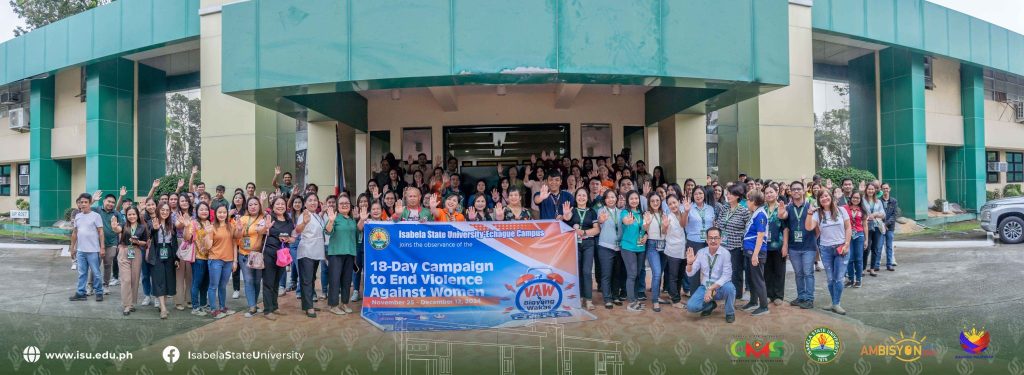
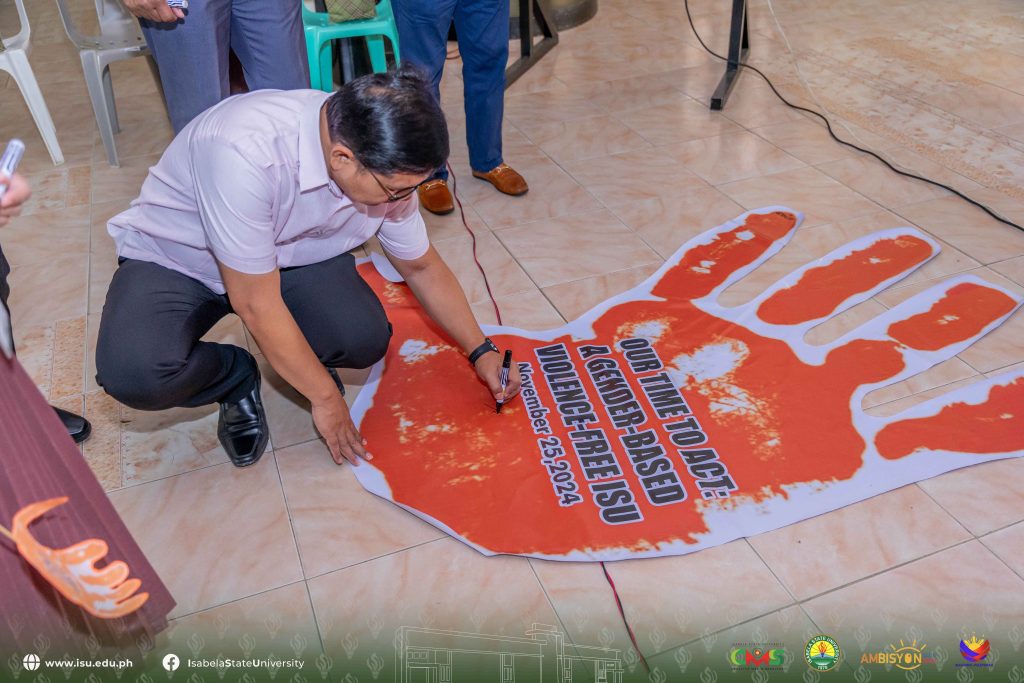
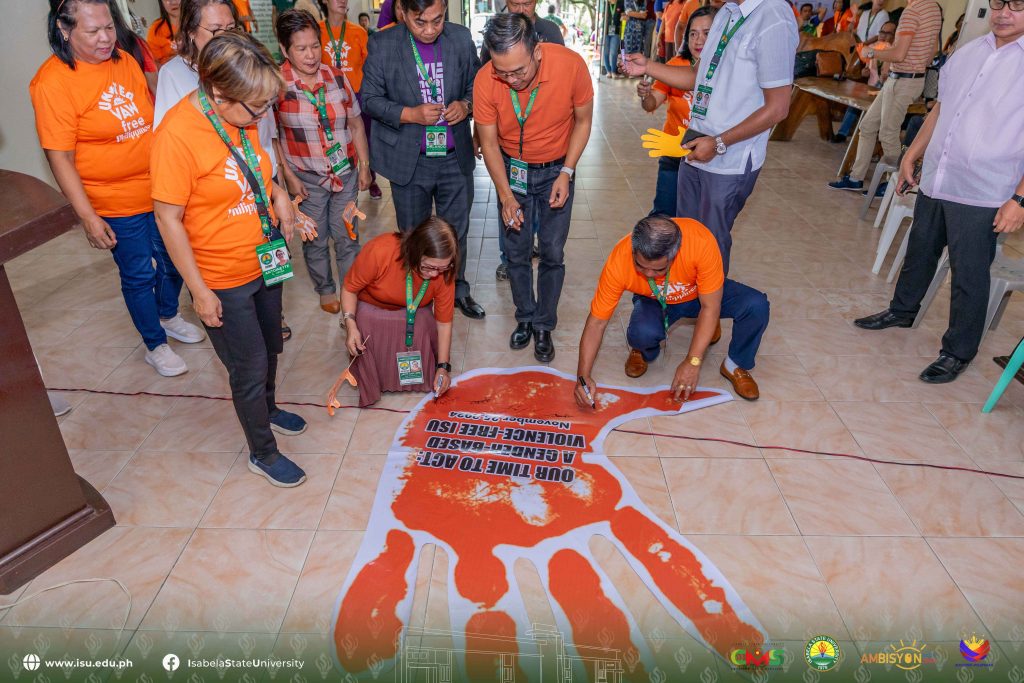
PROPORTION OF GRADUATES IN LAW AND CIVIL ENFORCEMENT
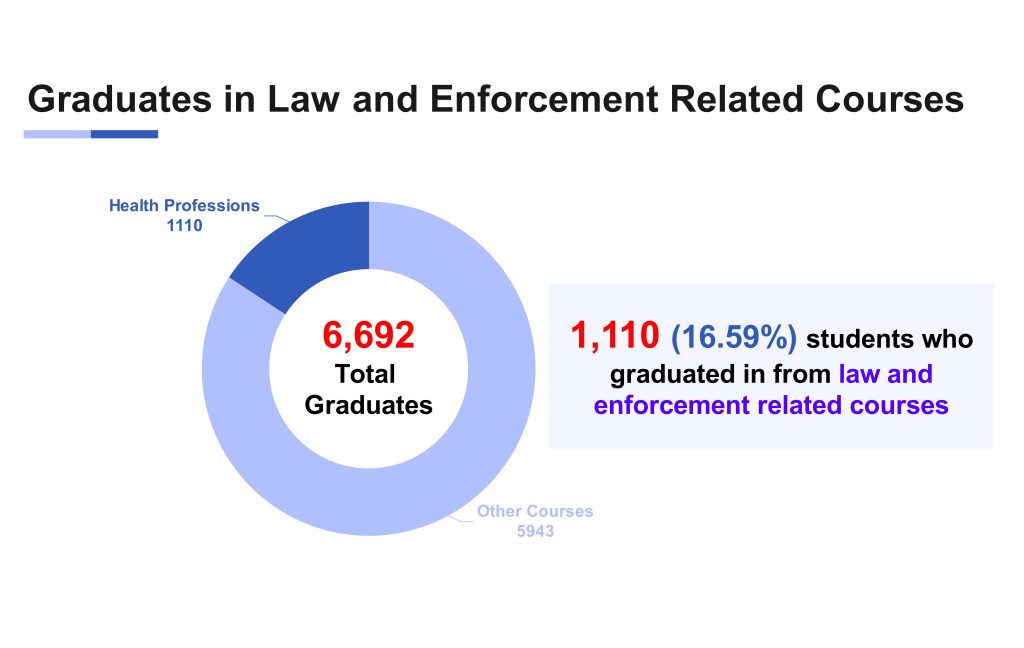
The Isabela State University (ISU) System proudly showcased its strong commitment to academic excellence through the remarkable number of graduates in law and civil enforcement for Academic Year 2023-2024. Across all campuses, a total of 749 graduates were recorded.
The first semester produced a modest group of five Criminology graduates from Echague, Jones, and Cabagan campuses. By the second semester, however, numbers soared, with 736 graduates representing Criminology, Law Enforcement Administration, Legal Management, and Juris Doctor programs across Echague, Jones, Angadanan, Cabagan, Roxas, and Cauayan campuses. Meanwhile, the Midyear 2024 added eight (8) more Criminology candidates, further strengthening ISU’s commitment to shaping future protectors of justice and governance.
These results not only highlight ISU’s steady academic growth but also its expanding influence in preparing leaders for law enforcement and legal sectors in the region. This growth highlights ISU’s expanding role in shaping future law enforcers and legal professionals, reinforcing its mission to provide quality education and nation-building leaders.
ISU TOWARDS STRONGER COMMITMENT TO SDG 16
Isabela State University (ISU) demonstrates its unwavering dedication to peace, justice, and institutional integrity through its wide range of initiatives in student governance, community engagement, youth empowerment, legal education, and technological innovation. These programs collectively embody the University’s vision of fostering a socially responsible academic community that upholds democratic values and ethical leadership.
Through collaborative research, strategic partnerships, and active participation with local and national sectors, ISU continues to champion transparency, accountability, and inclusive governance. Its initiatives not only strengthen internal institutional practices but also extend their impact to the broader community—encouraging civic awareness, responsible citizenship, and equitable access to justice.
By empowering individuals and communities with knowledge, leadership opportunities, and access to transformative technologies, ISU nurtures a culture where justice, peace, and good governance are not merely aspirations but lived realities. The University’s enduring commitment ensures that these principles remain deeply rooted in its academic, administrative, and outreach endeavors, shaping a more just and sustainable future for all.

















